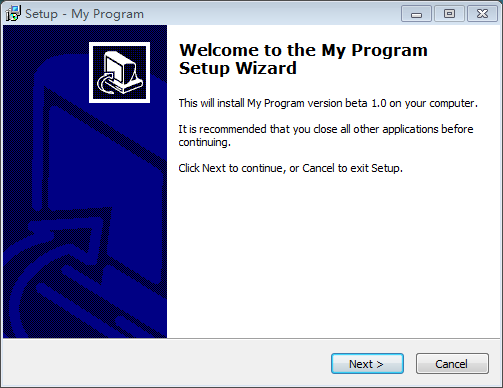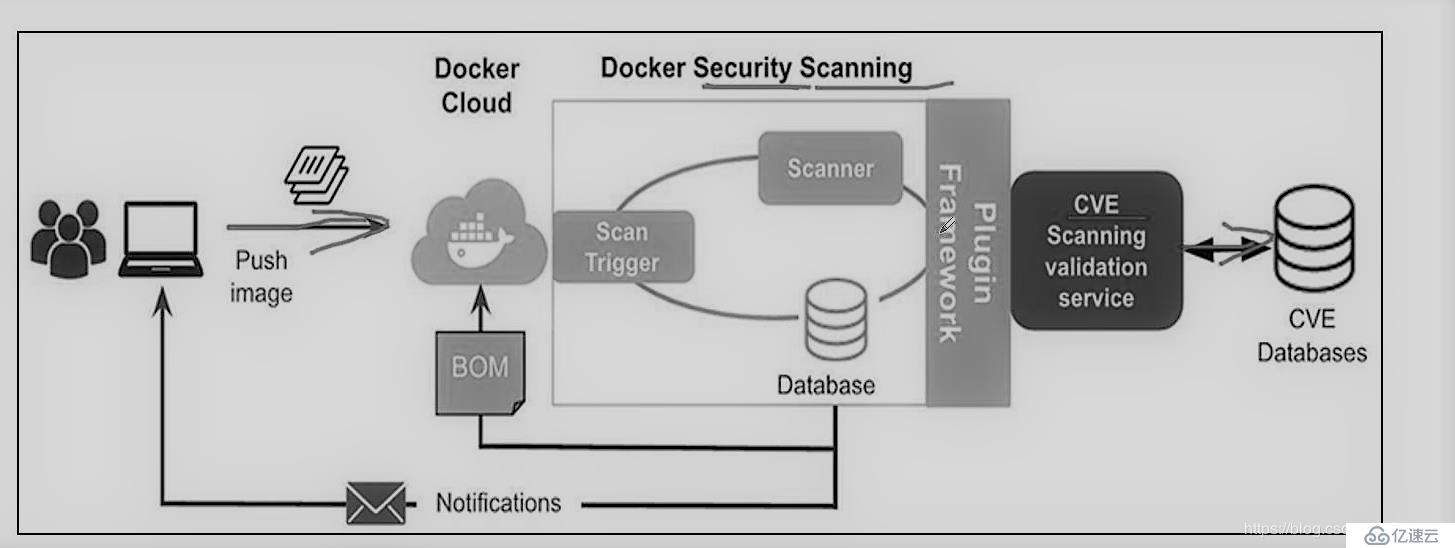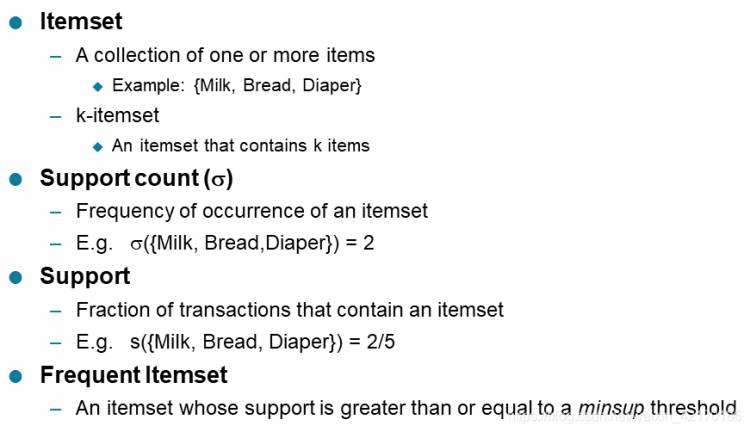前期博客
基于CentOS6.5下Suricata(一款高性能的网络IDS、IPS和网络安全监控引擎)的搭建(图文详解)(博主推荐)
基于Ubuntu14.04下Suricata(一款高性能的网络IDS、IPS和网络安全监控引擎)的搭建(图文详解)(博主推荐)
参考官网
https://redmine.openinfosecfoundation.org/projects/suricata/wiki/_Logstash_Kibana_and_Suricata_JSON_output
注意,这官网,默认是适合Ubuntu系统的安装手法。
首先,
Make sure your Suricata is compiled/installed with libjansson support enabled:

[root@suricata ~]# suricata --build-info
This is Suricata version 3.1 RELEASE
Features: PCAP_SET_BUFF LIBPCAP_VERSION_MAJOR=1 AF_PACKET HAVE_PACKET_FANOUT LIBCAP_NG LIBNET1.1 HAVE_HTP_URI_NORMALIZE_HOOK HAVE_NSS HAVE_LIBJANSSON TLS
SIMD support: SSE_4_2 SSE_4_1 SSE_3
Atomic intrisics: 1 2 4 8 16 byte(s)
64-bits, Little-endian architecture
GCC version 4.4.7 20120313 (Red Hat 4.4.7-18), C version 199901
compiled with _FORTIFY_SOURCE=0
L1 cache line size (CLS)=64
thread local storage method: __thread
compiled with LibHTP v0.5.20, linked against LibHTP v0.5.20Suricata Configuration:AF_PACKET support: yesPF_RING support: noNFQueue support: noNFLOG support: noIPFW support: noNetmap support: noDAG enabled: noNapatech enabled: noUnix socket enabled: yesDetection enabled: yeslibnss support: yeslibnspr support: yeslibjansson support: yeshiredis support: noPrelude support: noPCRE jit: noLUA support: nolibluajit: nolibgeoip: noNon-bundled htp: noOld barnyard2 support: noCUDA enabled: noHyperscan support: noLibnet support: yesSuricatasc install: yesProfiling enabled: noProfiling locks enabled: noDevelopment settings:Coccinelle / spatch: noUnit tests enabled: noDebug output enabled: noDebug validation enabled: noGeneric build parameters:Installation prefix: /usr/localConfiguration directory: /usr/local/etc/suricata/Log directory: /usr/local/var/log/suricata/--prefix /usr/local--sysconfdir /usr/local/etc--localstatedir /usr/local/varHost: x86_64-pc-linux-gnuCompiler: gcc (exec name) / gcc (real)GCC Protect enabled: noGCC march native enabled: yesGCC Profile enabled: noPosition Independent Executable enabled: noCFLAGS -g -O2 -march=nativePCAP_CFLAGS SECCFLAGS
[root@suricata ~]#
然后,需要配置
Configure suricata

[root@suricata suricata-3.1]# pwd
/root/suricata-3.1
[root@suricata suricata-3.1]# ls
aclocal.m4 compile config.h.in config.status configure.ac depcomp libhtp ltmain.sh Makefile.am qa scripts suricata.yaml
ChangeLog config.guess config.log config.sub contrib doc libtool m4 Makefile.in reference.config src suricata.yaml.in
classification.config config.h config.rpath configure COPYING install-sh LICENSE Makefile missing rules stamp-h1 threshold.config
[root@suricata suricata-3.1]# sudo vim suricata.yaml

# Extensible Event Format (nicknamed EVE) event log in JSON format- eve-log:enabled: yesfiletype: regular #regular|syslog|unix_dgram|unix_stream|redisfilename: eve.json#prefix: "@cee: " # prefix to prepend to each log entry# the following are valid when type: syslog above#identity: "suricata"#facility: local5#level: Info ## possible levels: Emergency, Alert, Critical,## Error, Warning, Notice, Info, Debug#redis:# server: 127.0.0.1# port: 6379# mode: list ## possible values: list (default), channel# key: suricata ## key or channel to use (default to suricata)# Redis pipelining set up. This will enable to only do a query every# 'batch-size' events. This should lower the latency induced by network# connection at the cost of some memory. There is no flushing implemented# so this setting as to be reserved to high traffic suricata.# pipelining:# enabled: yes ## set enable to yes to enable query pipelining# batch-size: 10 ## number of entry to keep in buffertypes:- alert:# payload: yes # enable dumping payload in Base64# payload-buffer-size: 4kb # max size of payload buffer to output in eve-log# payload-printable: yes # enable dumping payload in printable (lossy) format# packet: yes # enable dumping of packet (without stream segments)http: yes # enable dumping of http fieldstls: yes # enable dumping of tls fieldsssh: yes # enable dumping of ssh fieldssmtp: yes # enable dumping of smtp fields# HTTP X-Forwarded-For support by adding an extra field or overwriting# the source or destination IP address (depending on flow direction)# with the one reported in the X-Forwarded-For HTTP header. This is# helpful when reviewing alerts for traffic that is being reverse# or forward proxied.xff:enabled: no# Two operation modes are available, "extra-data" and "overwrite".mode: extra-data# Two proxy deployments are supported, "reverse" and "forward". In# a "reverse" deployment the IP address used is the last one, in a# "forward" deployment the first IP address is used.deployment: reverse# Header name where the actual IP address will be reported, if more# than one IP address is present, the last IP address will be the# one taken into consideration.header: X-Forwarded-For- http:extended: yes # enable this for extended logging information# custom allows additional http fields to be included in eve-log# the example below adds three additional fields when uncommented#custom: [Accept-Encoding, Accept-Language, Authorization]- dns- tls:extended: yes # enable this for extended logging information- files:force-magic: no # force logging magic on all logged filesforce-md5: no # force logging of md5 checksums#- drop:# alerts: no # log alerts that caused drops- smtp:#extended: yes # enable this for extended logging information# this includes: bcc, message-id, subject, x_mailer, user-agent# custom fields logging from the list:# reply-to, bcc, message-id, subject, x-mailer, user-agent, received,# x-originating-ip, in-reply-to, references, importance, priority,# sensitivity, organization, content-md5, date#custom: [received, x-mailer, x-originating-ip, relays, reply-to, bcc]# output md5 of fields: body, subject# for the body you need to set app-layer.protocols.smtp.mime.body-md5# to yes#md5: [body, subject]- ssh- stats:totals: yes # stats for all threads merged togetherthreads: no # per thread statsdeltas: no # include delta values# bi-directional flows- flow# uni-directional flows#- netflow
改为

# "United" event log in JSON format- eve-log:enabled: yestype: file #file|syslog|unix_dgram|unix_streamfilename: eve.json# the following are valid when type: syslog above#identity: "suricata" #facility: local5#level: Info ## possible levels: Emergency, Alert, Critical,## Error, Warning, Notice, Info, Debugtypes:- alert- http:extended: yes # enable this for extended logging information- dns- tls:extended: yes # enable this for extended logging information- files:force-magic: yes # force logging magic on all logged filesforce-md5: yes # force logging of md5 checksums#- drop- ssh- smtp
然后,接下是安装
Install ELK (elasticsearch, logstash, kibana)
先卸载自带的openjdk
rpm -qa|grep java
rpm -e --nodeps tzdata-java-2013g-1.el6.noarch
rpm -e --nodeps java-1.7.0-openjdk-1.7.0.45-2.4.3.3.el6.x86_64
rpm -e --nodeps java-1.6.0-openjdk-1.6.0.0-1.66.1.13.0.el6.x86_64
注意:这里一定要是jdk1.8,不然会报如下错误
[root@suricata ~]# sudo /etc/init.d/elasticsearch start
Starting elasticsearch: Elasticsearch requires at least Java 8 but your Java version from /usr/local/jdk/jdk1.7.0_79/bin/java does not meet this requirement[FAILED]
[root@suricata ~]#
官网提示了,建议安装orcal 的 jdk。
我这里安装jdk18。

[root@suricata suricata-3.1]# cd /usr/local/
[root@suricata local]# ls
bin etc games include lib lib64 libexec sbin share src var
[root@suricata local]# mkdir jdk
[root@suricata local]# cd jdk/
[root@suricata jdk]# pwd
/usr/local/jdk
[root@suricata jdk]# ll
total 0
[root@suricata jdk]# rz

[root@suricata jdk]# pwd
/usr/local/jdk
[root@suricata jdk]# ll
total 176992
-rw-r--r--. 1 root root 181238643 Sep 3 2016 jdk-8u60-linux-x64.tar.gz
[root@suricata jdk]# tar -zxvf jdk-8u60-linux-x64.tar.gz
然后,再vim /etc/profile
#java
export JAVA_HOME=/usr/local/jdk/jdk1.8.0_60
export CLASSPATH=.:$JAVA_HOME/jre/lib/rt.jar:$JAVA_HOME/lib/dt.jar:$JAVA_HOME/lib/tools.jar
export PATH=$PATH:$JAVA_HOME/bin
文件生效
source /etc/profile

然后,接下来就是安装ELk和配置JDK。(注意以下只是个例子)
wget https://download.elasticsearch.org/kibana/kibana/kibana-3.0.0.tar.gz
wget https://download.elasticsearch.org/elasticsearch/elasticsearch/elasticsearch-1.6.1.deb
wget https://download.elastic.co/logstash/logstash/packages/debian/logstash_1.5.3-1_all.deb
tar -C /var/www/ -xzf kibana-3.0.0.tar.gz
dpkg -i elasticsearch-1.6.1.deb
dpkg -i logstash_1.5.3-1_all.deb

我这里啊,Elasticsearch选取5.5.0



所以,总的是
[root@suricata ~]# wget https://artifacts.elastic.co/downloads/elasticsearch/elasticsearch-5.5.0.deb
[root@suricata ~]# wget https://artifacts.elastic.co/downloads/logstash/logstash-5.5.0.deb
[root@suricata ~]# wget https://artifacts.elastic.co/downloads/kibana/kibana-5.5.0-linux-x86_64.tar.gz
最后下载,得到

[root@suricata ~]# pwd
/root
[root@suricata ~]# ls
anaconda-ks.cfg Desktop Downloads install.log kibana-5.5.0-linux-x86_64.tar.gz Music Public suricata-3.1.tar.gz Videos
data Documents elasticsearch-5.5.0.deb install.log.syslog logstash-5.5.0.deb Pictures suricata-3.1 Templates
[root@suricata ~]#
然后,进行对kibana的安装

[root@suricata ~]# pwd
/root
[root@suricata ~]# ls
anaconda-ks.cfg Desktop Downloads install.log kibana-5.5.0-linux-x86_64.tar.gz Music Public suricata-3.1.tar.gz Videos
data Documents elasticsearch-5.5.0.deb install.log.syslog logstash-5.5.0.deb Pictures suricata-3.1 Templates
[root@suricata ~]# tar -C /var/www/ -xzf kibana-5.5.0-linux-x86_64.tar.gz
得到

[root@suricata www]# pwd
/var/www
[root@suricata www]# ls
cgi-bin error html icons kibana-5.5.0-linux-x86_64
[root@suricata www]#
若大家没安装过这个命令,则安装下即可。
[root@suricata ~]# yum -y install dpkg
然后,进行对elasticsearch的安装

[root@suricata ~]# pwd
/root
[root@suricata ~]# ls
anaconda-ks.cfg Desktop Downloads install.log kibana-5.5.0-linux-x86_64.tar.gz Music Public suricata-3.1.tar.gz Videos
data Documents elasticsearch-5.5.0.deb install.log.syslog logstash-5.5.0.deb Pictures suricata-3.1 Templates
[root@suricata ~]# dpkg -i elasticsearch-5.5.0.deb
这里啊,我建议大家还是去安装tar.gz包,这种方式比较好。

所以,后面,我还是下载了,rpm包,以这种方式来进行安装。
[root@suricata ~]# wget https://artifacts.elastic.co/downloads/elasticsearch/elasticsearch-5.5.0.rpm
[root@suricata ~]# wget https://artifacts.elastic.co/downloads/logstash/logstash-5.5.0.rpm

进行elasticsearch-5.5.0的安装

[root@suricata ~]# pwd
/root
[root@suricata ~]# ls
anaconda-ks.cfg Desktop Downloads elasticsearch-5.5.0.rpm install.log.syslog logstash-5.5.0.deb Music Public suricata-3.1.tar.gz Videos
data Documents elasticsearch-5.5.0.deb install.log kibana-5.5.0-linux-x86_64.tar.gz logstash-5.5.0.rpm Pictures suricata-3.1 Templates
[root@suricata ~]# rpm -ivh elasticsearch-5.5.0.rpm
warning: elasticsearch-5.5.0.rpm: Header V4 RSA/SHA512 Signature, key ID d88e42b4: NOKEY
Preparing... ########################################### [100%]
Creating elasticsearch group... OK
Creating elasticsearch user... OK
1:elasticsearch ########################################### [100%]
### NOT starting on installation, please execute the following statements to configure elasticsearch service to start automatically using chkconfig
sudo chkconfig --add elasticsearch
### You can start elasticsearch service by executing
sudo service elasticsearch start
安装完,默认即有

然后,进行logstash的安装

[root@suricata ~]# pwd
/root
[root@suricata ~]# ls
anaconda-ks.cfg Desktop Downloads elasticsearch-5.5.0.rpm install.log.syslog logstash-5.5.0.deb Music Public suricata-3.1.tar.gz Videos
data Documents elasticsearch-5.5.0.deb install.log kibana-5.5.0-linux-x86_64.tar.gz logstash-5.5.0.rpm Pictures suricata-3.1 Templates
[root@suricata ~]# rpm -ivh logstash-5.5.0.rpm
warning: logstash-5.5.0.rpm: Header V4 RSA/SHA512 Signature, key ID d88e42b4: NOKEY
Preparing... ########################################### [100%]1:logstash ########################################### [100%]
Using provided startup.options file: /etc/logstash/startup.options
/usr/share/logstash/vendor/jruby/bin/jruby: line 388: /usr/bin/java: No such file or directory
/usr/share/logstash/vendor/jruby/bin/jruby: line 388: exec: /usr/bin/java: cannot execute: No such file or directory
Unable to install system startup script for Logstash.
[root@suricata ~]#
安装完,默认即有

然后,下面是
Logstash configuration

[root@suricata conf.d]# pwd
/etc/logstash/conf.d
[root@suricata conf.d]# ll
total 0
[root@suricata conf.d]# touch /etc/logstash/conf.d/logstash.conf
插入如下内容
input {file { path => ["/var/log/suricata/eve.json"]sincedb_path => ["/var/lib/logstash/"]codec => json type => "SuricataIDPS" }}filter {if [type] == "SuricataIDPS" {date {match => [ "timestamp", "ISO8601" ]}ruby {code => "if event['event_type'] == 'fileinfo'; event['fileinfo']['type']=event['fileinfo']['magic'].to_s.split(',')[0]; end;" }}if [src_ip] {geoip {source => "src_ip" target => "geoip" #database => "/opt/logstash/vendor/geoip/GeoLiteCity.dat" add_field => [ "[geoip][coordinates]", "%{[geoip][longitude]}" ]add_field => [ "[geoip][coordinates]", "%{[geoip][latitude]}" ]}mutate {convert => [ "[geoip][coordinates]", "float" ]}if ![geoip.ip] {if [dest_ip] {geoip {source => "dest_ip" target => "geoip" #database => "/opt/logstash/vendor/geoip/GeoLiteCity.dat" add_field => [ "[geoip][coordinates]", "%{[geoip][longitude]}" ]add_field => [ "[geoip][coordinates]", "%{[geoip][latitude]}" ]}mutate {convert => [ "[geoip][coordinates]", "float" ]}}}}
}output { elasticsearch {host => localhost#protocol => http}
}
然后,再
Configure the start-up services
update-rc.d elasticsearch defaults 95 10 (这两个是ubuntu系统里的做法,我这里是centos系统,不需要)
update-rc.d logstash defaults
service httpd start 启动apache
service elasticsearch start
service logstash start
或者
启动服务sudo /etc/init.d/elasticsearch start
停止服务sudo /etc/init.d/elasticsearch stop
启动服务sudo /etc/init.d/logstash/start
停止服务sudo /etc/init.d/logstashstop
如果大家在启动过程中,出现如下问题。
[root@suricata ~]# sudo /etc/init.d/elasticsearch start
which: no java in (/sbin:/usr/sbin:/bin:/usr/bin)
Could not find any executable java binary. Please install java in your PATH or set JAVA_HOME
[root@suricata ~]#
则见
ElasticSearch里JAVA环境丢失的问题
-rwxr-x---. 1 root root 5113 Jul 1 07:20 elasticsearch ,经过
[root@suricata init.d]# chmod 755 elasticsearch
[root@suricata init.d]# pwd
/etc/init.d
[root@suricata init.d]#
改为
-rwxr-xr-x. 1 root root 5113 Jul 1 07:20 elasticsearch
大家,自行按照自己的jdk位置。
export JAVA_HOME=/usr/local/jdk/jdk1.8.0_60
然后,就可以成功了。

[root@suricata ~]# sudo /etc/init.d/elasticsearch start
Starting elasticsearch: [ OK ]
[root@suricata ~]#
然后,大家也许在启动,会遇到这样的问题:
Logstash默认的配置文件位置为./config和/etc/logstash/,后者已经存在,但直接运行依然会报错:
WARNING: Could not find logstash.yml which is typically located in $LS_HOME/config or /etc/logstash.
见
Logstash使用grok解析IIS日志
简单起见,直接在Logstash根目录创建软链接即可:
cd /usr/share/logstash
[root@suricata logstash]# pwd
/usr/share/logstash
[root@suricata logstash]# ln -s /etc/logstash ./config
[root@suricata logstash]#
设置配置文件实时生效,从而不用频繁地启停Logstash。
修改/etc/logstash/logstash.yml

config.reload.automatic: true
Logstash的运行
与Elasticsearch、Kibana不同,Logstash默认并不作为系统服务安装,我们也不建议作为服务启动。主要原因为:大多数情况下,Elasticsearch、Kibana在每台服务器上只有一个实例,可以作为服务启动;而一个Logstash实例一般只服务于一个数据流,因此一台服务器上经常运行多个实例 。编写一个配置文件helloworld.conf进行测试。注意,不要把该文件放在/etc/logstash/conf.d下,以避免不同实例间产生混淆,因为该文件夹是Logstash默认读取的文件夹。简单起见,可直接放在Logstash根目录下。
input { stdin {}
}
output { stdout {}
}
这是一个命令行输入、命令行输出的Logstash实例,运行成功则说明已配置正确:
bin/logstash -f helloworld.conf
虽然如此,很多时候我们还是希望各个Logstash实例能随系统而启动并在后台运行。将其加入计划任务即可:
nohup /usr/share/logstash/bin/logstash -f /usr/share/logstash/helloworld.conf > /dev/null &
然后,
Now make sure Suricata is running and you have logs written in your JSON log files
http://localhost/kibana-5.5.0
https://redmine.openinfosecfoundation.org/projects/suricata/wiki/_Logstash_Kibana_and_Suricata_JSON_output
继续









 京公网安备 11010802041100号
京公网安备 11010802041100号